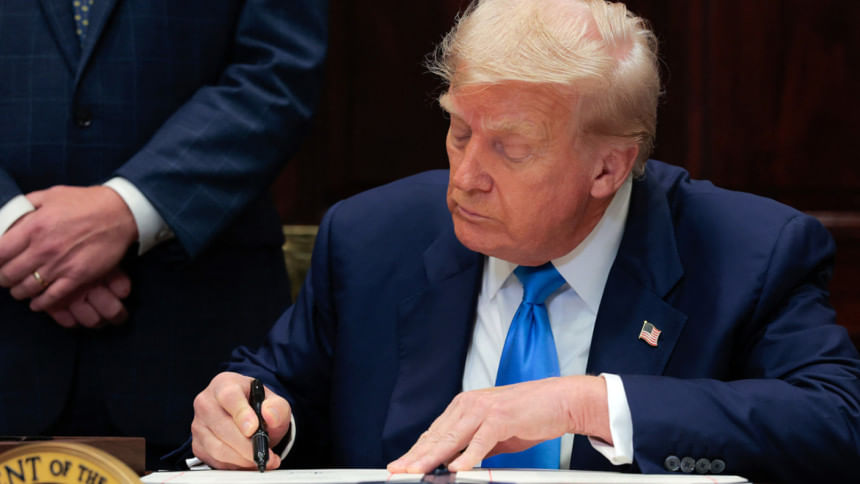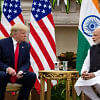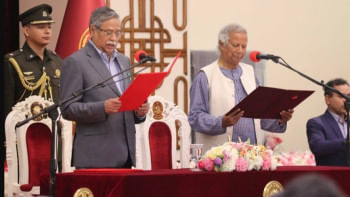Russian oil purchase: Trump raises India tariffs to 50%

US President Donald Trump imposed an additional 25 percent tariff on Indian goods, citing New Delhi's continued imports of Russian oil in a move that sharply escalated tensions between the two nations after trade talks reached a deadlock.
The new import tax, effective 21 days after August 7, will raise duties on some Indian exports to as high as 50 percent -- among the highest levied on any US trading partner.
Trump's executive order imposing the extra tariff did not mention China, which also imports Russian oil.
Exemptions remain, however, for goods targeted under sector-specific duties, such as steel and aluminium, as well as categories that could be affected later, including pharmaceuticals and semiconductors.
Smartphones are among this list of exempted products for now, notably shielding Apple from a major hit as the US tech titan shifts production from China to India.
India's foreign ministry condemned Trump's tariff announcement, calling the move "unfair, unjustified and unreasonable."
"India will take all necessary steps to protect its national interests," it said.
The ministry previously said India began importing oil from Russia as traditional supplies were diverted to Europe over the war -- noting that Washington had "actively encouraged" such imports to strengthen "global energy market stability."
Analysts said Trump's move marks the most serious downturn in US-India relations since his return to office in January. The tariffs threaten to disrupt India's access to its largest export market, where shipments totalled nearly $87 billion in 2024, hitting sectors like textiles, footwear, gems and jewelry.
The development comes as Indian Prime Minister Narendra Modi prepares for his first visit to China in over seven years, suggesting a potential realignment in alliances as relations with Washington fray.
India's national security adviser was in Moscow yesterday, media in New Delhi reported, coinciding with US envoy Steve Witkoff's visit.
Last week, US Treasury Secretary Scott Bessent warned China that continued Russian oil purchases could trigger new tariffs, as Washington prepares for the expiry of a US-China tariff ceasefire on August 12.
Trade between the United States and India, the world's biggest and fifth-largest economies, respectively, is worth over $190 billion.
The increased duties place Indian exporters at a 30–35% disadvantage versus trade rivals in Vietnam, Bangladesh and Japan.
"We still have a window," said a senior Indian official, requesting anonymity. "The fact that the new tariffs take effect in 21 days signals the White House is open to talks."
Another official said there were no immediate plans for Modi or senior leaders to travel to Washington, nor were any retaliatory measures being considered.
A sharp drop in US-bound shipments could drag India's GDP growth below 6 percent this year, down from the central bank's 6.5 percent forecast, said Sakshi Gupta of HDFC Bank.

 For all latest news, follow The Daily Star's Google News channel.
For all latest news, follow The Daily Star's Google News channel. 






Comments